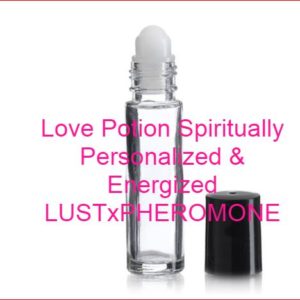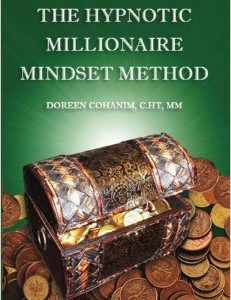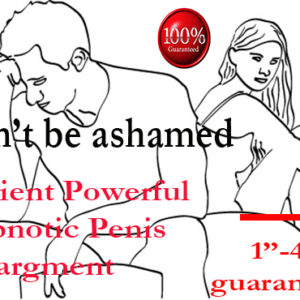This is the first trailer for Jordan Peele’s directorial debut Get Out has hit, causing an understandable stir. Given Peele’s Emmy-winning Comedy Central show Key & Peele, it’s perhaps no surprise that his first film as director would involve racial commentary (one of his most famous skits revolves around the fear of black man has walking through a white neighborhood, but what’s interesting is that he would insert this within the horror genre.
The plot focuses on Chris (Sicario’s Daniel Kaluuya), a black man planning to meet the parents of his white girlfriend Rose (Allison Williams, known for her role as Marnie in Girls) for the first time. But from the outset, something seems off. An uncomfortable encounter with a local cop puts them – and us – on edge and once they arrive at the family home and get settled, Chris becomes aware of increasingly strange, and potentially murderous, behavior. A major element of this relates to racial difference as Chris must navigate an almost entirely white space (apart from the “help”), relying on a lifetime’s worth of practice dealing with micro-aggressions and discrimination. It’s a thrilling conceit and one hopes that Get Out might signal a trend of culturally relevant horror films from film-makers of color.
The Stepford-like existence the parents live in appears to thrive on the white community’s hypnosis-based subjugation of black people. When Chris, a black man, comes face-to-face with a white woman’s mesmerizing, spinning spoon, we know he’s in trouble.
Early on in the trailer, Rose’s father tells Chris that the mother could help him quit smoking via hypnosis. The scene cuts to her steady gaze, paired with a shot of a spoon spinning in a teacup. Later, we see the teacup and the same spoon twirl again, this time in a much more chilling setting: As Rose’s mother and Chris sit opposite of each other; she twirls her spoon and commands him to “sink into the floor.”
Rose’s mother is a hypnotist, but her spinning spoon is far from a teatime coincidence. The first stage of hypnosis is the “hypnotic induction,” which starts with eye fixation that helps the person to enter into a trance state guide the person into relaxation. While during a Clinical Hypnotherapy session the hypnotherapist’s helps her client with positive suggestions instructing the clients to visualize or imagine a safe place where the client can feel safe and secure that allows the client to easily enter into their subconscious mind. Particular psychologists believe that hypnosis is an effective way to reprogram the subconscious mind to change u8nwanted feelings, habits or behavior. And believe me, most of my clients have horror stories that are suppressed deep inside of their mind while consciously it terrifies their wellbeing. With the help of hypnotherapy sessions a client horror can easily be eliminated and replaces with joy, success and happiness, which in return is helps the subconscious mind to help change old behaviors and help the client person with an effective solution to their problems in a more approachable resolutions.
The trace of hypnosis runs parallel to the sense of ethnic unease throughout the trailer. Later, we are introduced to another young black man named Andre who appears dazed until he sees the sudden flash of Chris’s camera, prompting both a nose bleed and a guttural cry for Chris to get out. Is the flash some sort of “trigger,” a technique used by hypnotists to end the process? It’s unknown, but it certainly looks like it means more trouble for both Chris and Andre.
There is a teacup-aided hypnosis; there is a lacrosse stick being wielded as a weapon; there is a sinister repeated refrain courtesy of the United Negro College Fund’s classic slogan, “A mind is a terrible thing to waste.” Yet Get Out doesn’t really look like a breezy, goofy-scary romp—it looks terrifying. Which, given some of the stuff that went down on Key and Peele, probably shouldn’t actually be a surprise. Lock the door, grab a set of golf clubs just in case, and get ready: the film is intense.
Near the end of the trailer, we hear a famous saying being repeated: “A mind is a terrible thing to waste.” The quotation, attributed to the former head of the United Negro College Fund, Arthur Fletcher, is emblematic of the idea that power can be wrought by different facets of psychology. However Hypnosis can’t be the force responsible for the strangeness going on here, and this is confirmed, later, when we see a quick shot of a creepy surgeon and a box of menacing scalpel-like tools. But as far as we can tell, hypnosis at least serves as the gateway for control — first of the mind and later of the body.
Note: Imagine your life experiences as an horror movie and Hypnosis as your last resort to happiness.




 October 6th, 2016
October 6th, 2016  doreen.co
doreen.co  Posted in
Posted in  Tags:
Tags: 










 HMI Private Practice of Hypnotherapy Provider
Primary specialty: Alternative Medicine
Secondary speciality: Behavior Therapy
Doreen is an
Honors Graduate of HMI and also a Certified Practitioner /Facilitator of The Melchizedek MethodT (incorporating the Hologramof Love Merkaba). Energy Healer since August 1999, she was healedfrom a car accident preventing back surgery and being able toeliminate her back pain with hypnotherapy and energyhealing
Doreen is an Honors Graduate of HMI and also a Certified Practitioner / Facilitator of The Melchizedek MethodT (incorporating the Hologram of Love Merkaba). Energy Healer since August 1999,...
HMI Private Practice of Hypnotherapy Provider
Primary specialty: Alternative Medicine
Secondary speciality: Behavior Therapy
Doreen is an
Honors Graduate of HMI and also a Certified Practitioner /Facilitator of The Melchizedek MethodT (incorporating the Hologramof Love Merkaba). Energy Healer since August 1999, she was healedfrom a car accident preventing back surgery and being able toeliminate her back pain with hypnotherapy and energyhealing
Doreen is an Honors Graduate of HMI and also a Certified Practitioner / Facilitator of The Melchizedek MethodT (incorporating the Hologram of Love Merkaba). Energy Healer since August 1999,...